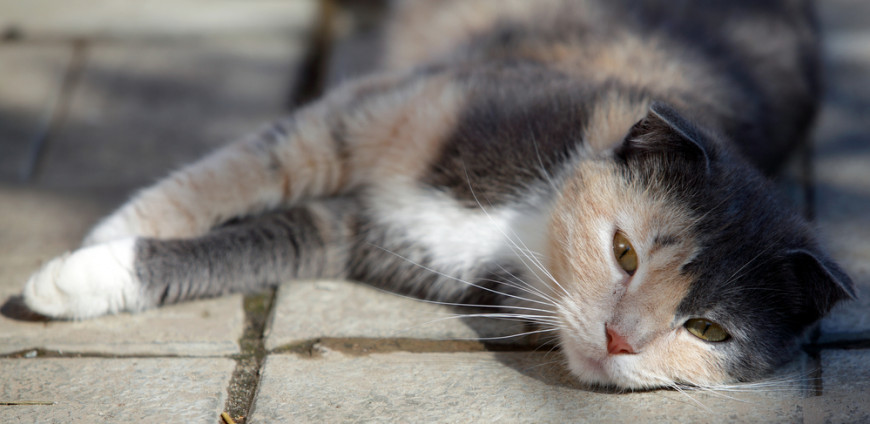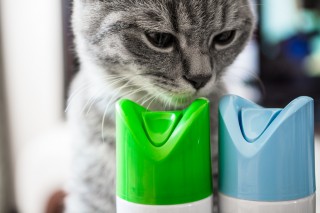We're here to help

What causes poisoning in cats?
Our emergency vets regularly treat cats who have been poisoned. These cases tend to result from either swallowing, or breathing in, a noxious substance. But cats can also be poisoned just by coming into contact with something toxic. They may also ingest dangerous toxins while grooming themselves. This might be something they’ve brushed against or stood in.
What are the symptoms of cat poisoning?
Signs of poisoning in cats can vary tremendously depending on what they’ve eaten, inhaled or come into contact with. Some poisons will have an almost instant effect while others may take several days for symptoms to develop. We’ve listed some of the most common symptoms in the table below but bear in mind this isn’t exhaustive and some of these may indicate conditions other than poisoning.
What to do if your cat has been poisoned?
If you’re worried your cat has been poisoned, call your daytime vet or, out of hours, your nearest Vets Now pet emergency service. The sooner your cat is treated the more positive the outcome is likely to be. If your cat has eaten something toxic do not offer them water as this may, inadvertently, move the poison into the body quicker. Only ever induce vomiting if you’re instructed to do so by a vet as you may do more harm than good. If you know what’s poisoned your cat take a container, label or sample of the product to the vet with you. A specimen of any vomit or diarrhoea your cat has passed can also be helpful.
What are the most common cat poisons?
Among the most common causes of poisoning in cats are plants such as lilies, popular household products like antifreeze and cleaning fluids, and commonly used chemicals such as weed killer. Our emergency vets also occasionally see cats poisoned by rat poison, topical spot-on insecticides (flea treatments), products containing benzalkonium chloride, and human drugs, such as antidepressants, non-steroidal anti-inflammatories and paracetamol.
Cat poison symptoms diagnosis
If you suspect your cat’s been poisoned, it’s important you see a vet as quickly as possible. Time really is of the essence in these situations. Your vet should be able to give you a diagnosis for many of the commonly occurring poisons based on the evidence you provide, your cat’s symptoms and the results of blood and urine tests. Ultrasound may also be used to look at the liver and kidneys, which are often badly affected by toxic substances.

Can cats recover from poisoning?
Cats can and do survive being poisoned if they’re treated early and appropriately. In one study of 20 cats poisoned by permethrin, a chemical widely used in flea control products for dogs, only one died and this was because he wasn’t taken to a vet for 24 hours. In the surviving cats, no long-term complications were reported four months after discharge. The prognosis for cats poisoned by lilies is also good. In a study into Easter lily poisoning by Reineke et al, 100% of cats survived, although 9% went on to develop severe acute kidney injury. Sadly, the long-term prognosis is poor in cats who develop renal failure.
Treating a poisoned cat
If your vet knows the poison, they may be able to give an antidote, although not all poisons have antidotes. If the type of poison is uncertain, or there is no antidote, they’ll treat the symptoms to maintain normal function of the organs until the poison has been flushed out of the cat’s system.
Home remedies for poisoned cat
There are a whole host of home remedy suggestions for pet poisoning on the internet. But our strong advice is to only ever follow the guidance you’re given from a trained veterinarian. Our main reason for this is many of these suggestions, such as feeding a poisoned pet milk, peanut butter, vegetable oil, or salt, can cause more harm than good. The same can be said of trying to make your pet sick. For example, poisons that contain petroleum products cause lung infections when vomited. One thing you can do if the poison is on your pet’s skin is rinse the affected area thoroughly.

